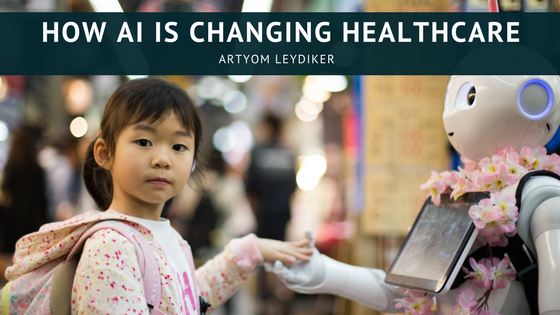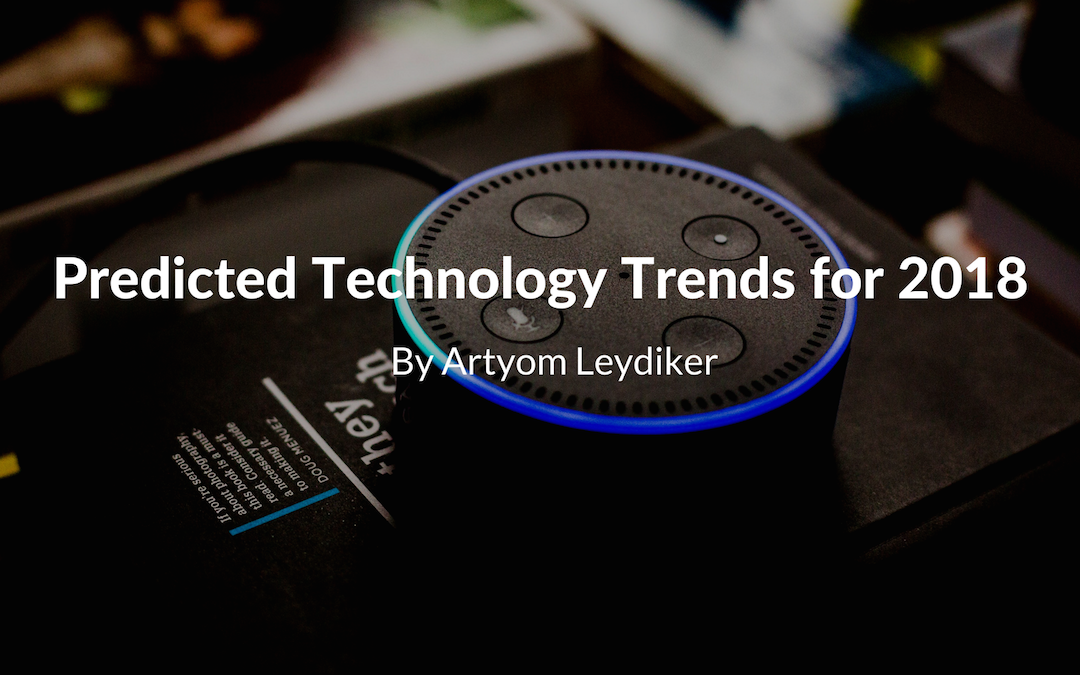About Artyom
Artyom Leydiker has been interested in technology for as long as he can remember. Now more than ever, technology has become a domineering force — both in our individual everyday lives and in global shifts toward change and progress in business, entertainment, education, and much more. Artyom created this blog to share some of the news and trends in technology that inspire him, including but not limited to virtual reality, artificial intelligence, and the rise of blockchain. Check out his blog page for all content, or get started with a few posts below!

How AI is Changing Healthcare
Artificial intelligence is affecting all aspects of the workforce. Healthcare is one area that the advancements in AI will have a significant impact on. Some routine procedures in healthcare are already completed using AI technologies. This article will talk about some processes and procedures that may be run on AI technology and what AI holds for the future of healthcare.
Medical Records
Identifying medical records for patients is a starting point for what Artificial Intelligence can do in the healthcare sector. The ability to store and summon medical records is an extremely useful tool that will save time, money, and provide doctors with a better analysis of how to approach treating a patient. Companies such as Google have already begun using this kind of technology to help doctors and patients in a few hospitals. The technology Google is using is still in its trial stage, and they continue to rework it for better results. They predict that their Deepmind health project will be able to recommend treatment plans to doctors and patients in the future.
Diagnosis
AI is helping medical professionals diagnose conditions easier and quicker than before. AI, equipped with patient medical history knowledge, is now able to diagnose a problem based off of that knowledge. IBM is another company that is a leader in innovative AI technologies for the healthcare industry. The company has designed AI that can quickly scan images for disease stricken parts of the body and formulate a diagnosis from them. AI can accurately read CT scans, X-rays and other images without human intervention.
Online Consultations
Ai can fix the problem of waiting for an appointment with your doctor. There are apps designed to ask you questions to gather information about a medical condition you may have. If you are not feeling well, you can message the app, and it will ask you a few questions about your symptoms. From there, the app can recommend a course of action for your symptoms. These apps can also serve as reminders for patients to take their medication and follow up on past inquiries to see how they are feeling. Apps like Babylon can reduce wait times and time used to diagnose patients by seeing a doctor face-to-face.
Drug Creation
The analysis that AI offers for the vast amount of information it has stored can provide alternatives to new creations of drugs to treat existing diseases. This process of creating new drugs helps save time using other methods of research for medical professionals.

Predicted Technology Trends for 2018
With a new year comes new ideas, new inspiration, and unsurprisingly, new technology. While there is no way to predict precisely what trends consumers will take to, here are just a few of the trends to be on the lookout for, according to experts:
This one is fairly self-explanatory for anyone familiar with their cell phone coverage plan. Faster than LTE, cell service providers will soon be rolling out the next and improved network as early as summer 2018.
Smart Cities
The United Nations predicts that 60% of the world’s population will live in cities by 2030. That’s a lot of people, and cities are attempting to get ahead of this shift by integrating technology into their ecosystems as seamlessly as possible. Europe intends to focus more on energy conservation while the United States will be zeroing in on transportation (driverless pizza delivery, anyone?).
Artificial Intelligence
AI is making waves across industries— and by extension, so is voice assistance and the continued progression of the smart home. Smart speakers, such as Alexa, or voice assistance in the form of Siri or Google Home can already be found in any home with a smartphone. Current numbers show that the hands-free interface is already a huge selling point. As smart speakers grow less expensive, they will grow even more attractive to potential consumers.
However, rather than come out with new products, companies such as Amazon and Google will look to expand their market by coordinating with others with the intent to draw consumers to sign up for services that can enhance their experiences (Money CNN). An Amazon Prime account isn’t necessary to purchase an Echo, but it could improve its capabilities, and that is what companies want to prioritize rather than come out with the latest edition of their Echo.
The smart speaker already has the capability to recognize a person’s voice. Digital Trends suggests that perhaps one day soon they’ll be able to know you mean milk when you say, “Alexa, order this,” without needing to clarify what you are holding. It may not be that far off!
Using “the cloud”
Most people presume that all data can be stored in “the cloud” in one way or another. However, edge computing, as described on Network World, helps some data get processed closer to where it is created. This helps alleviate issues that may arise if a device has a poor or weak connection to a central cloud. It also provides a solution for reducing the amount of data that traverses a network at one time, ensuring that the most important data is processed promptly.
For more insights by Artyom Leydiker about the fast-paced world of technology in which we live, check out his other blog posts!
Reedsy / Behance / Twitter / Stumbleupon / Crunchbase / Medium / Slideshare / Soundcloud